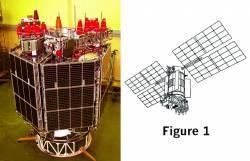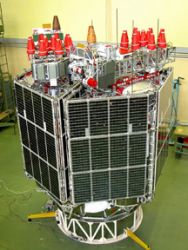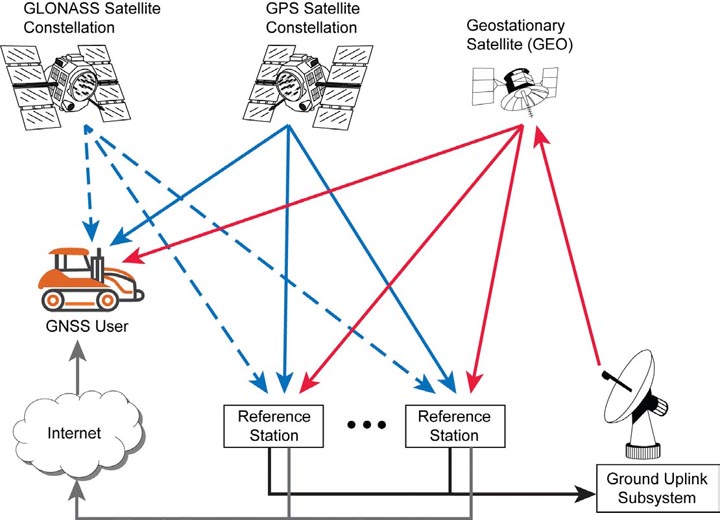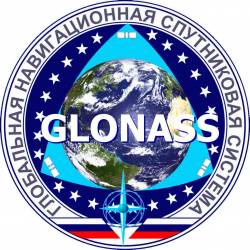 GLONASS-M satellite. Figure/photo, JSC “Academician M.F. Reshetnev “Information Satellite Systems”
GLONASS-M satellite. Figure/photo, JSC “Academician M.F. Reshetnev “Information Satellite Systems”A Proton-M carrier rocket successfully launched three GLONASS-M satellites into orbit early this morning (September 2, 2010, Moscow time) from the Baiknour space center in Kazakhstan. Another launch on November 30 will send three more M-type satellites into orbit, and the first GLONASS-K is scheduled to go up on December 25.
The imminent completion of a full constellation by the end of the year is accompanied by a vigorous policy initiative to promote Russia’s revitalized GNSS.
A Proton-M carrier rocket successfully launched three GLONASS-M satellites into orbit early this morning (September 2, 2010, Moscow time) from the Baiknour space center in Kazakhstan. Another launch on November 30 will send three more M-type satellites into orbit, and the first GLONASS-K is scheduled to go up on December 25.
The imminent completion of a full constellation by the end of the year is accompanied by a vigorous policy initiative to promote Russia’s revitalized GNSS.
Moscow news media have reported that Vladimir Putin, Russian Federation prime minister and former president who got GLONASS’s revitalization started in 2001, says that the government will spend an additional 48 billion rubles ($1.6 billion) on GLONASS over the next year and a half.
Russia is considering imposing an import duty of up to 25 percent on GNSS navigation equipment (read “GPS receivers”) that don’t also have GLONASS chips.
And the GLONASS news page on the Russian Space Agency (Roscosmos) website is updated almost daily with reports of new applications and developments involving the system.
Roscosmos’s head, Anatoli Perminov, recently laid the foundation stone of a new GLONASS headquarters to be built before 2013.
And, although a recent Reuters article cited government figures that there are only 43,000 GLONASS receivers currently in operation, the nation is energetically courting foreign (Nokia, Motorola, Qualcomm) and domestic manufacturers of mass-market products to incorporate the Russian technology.
The GLONASS system currently has 21 operational satellites transmitting healthy signals with another two new spacecraft in orbit as spares. Another triple launch of GLONASS-M satellites is scheduled for December as well as a prototype next-generation GLONASS-K.
The satellites are built by the Joint Stock Company “Academician M.F. Reshetnev “Information Satellite Systems” in Zheleznogorsk.





